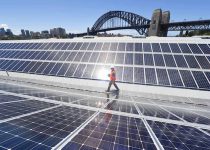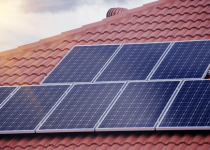Solar, Storage and Distributed Energy News
UNSW student-designed solar freezer installed on remote Fiji island

Students from the University of New South Wales have designed and installed a solar powered deep freezer in a remote village on Viwa Island, off the coast of Fiji.
The students, from the UNSW Engineering’s Sustainable Energy for Developing Countries course, visited the island as part of on-the-ground research offered by the University.
The class teacher, Dr Anna Bruce from the School of Photovoltaics and Renewable Energy Engineering, says the students are directed to come up with a solution that will both empower the community and allow them to be self-sufficient.
“One of the key challenges in these communities is the local capacity to maintain their own equipment,” said Dr Bruce.
“We challenge the students to ensure that they design a solar system that is technically and financially sustainable. We also ask them to consider the cultural and governance structure.”
“After installing the solar freezer system, we were received in a traditional island ceremony for guests to the village,” said recent UNSW Solar and Photovoltaic and Solar Energy Engineering graduate, Darcy Small, who was part of the team that travelled to Viwa Island.
“The communities we worked with place a high value on family and community relationships, reminding me of the importance of these aspects in life back home.”
The students said they hoped their research would help inform the next group of students to further assist the communities.
Further access to cold storage for fish, as well as to clean water, household electrification or clean cooking would make a positive impact on the community, they said.
“A key learning from this trip has been the importance of engineering design with people in mind, especially for humanitarian engineering,” said Sera Tarpis, a fourth-year UNSW Renewable Energy Engineering student.
“Having the privilege to enter the community and hear and see the concerns was very illuminating.
“It demonstrated the incredible impact a well-designed project can have, but also just how quickly expensive equipment can fall into disuse if not if not implemented correctly.”
Related Posts

City of Sydney pledges to source 100% renewables in 2020

Vicinity extends commercial solar + storage rollout to $75m, five states

Two million Australian households now have rooftop solar – and they vote

Sophie is editor of One Step Off The Grid and deputy editor of its sister site, Renew Economy. Sophie has been writing about clean energy for more than a decade.

Please note I have no commercial interest in the solution mentioned.